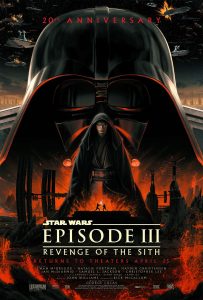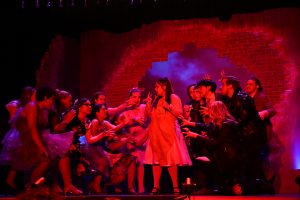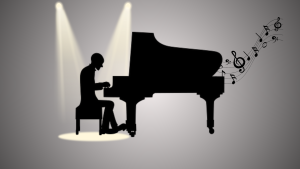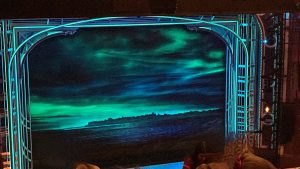At 8:30 p.m. in the Tiedtke Concert Hall, a packed audience rose to a standing ovation, prompting string quartet Brooklyn Rider back onto the stage to bow once again. What separates this from any number of Bach Festival programs is the aforementioned time: it was intermission. The four native New Yorkers enlivened history, bringing the crowd through periods of string compositions spanning hundreds of years, beginning in Armenia and extending into their namesake hometown borough.
The concert began with recognition of the group’s presence in Orlando the previous week, which they spent visiting local schools with A Gift for Teaching. They provided concerts and education for over 1500 local elementary school children, some of whose parents were in attendance.
As the quartet was introduced, violinist Johnny Gandelsman walked through the stage doors, his lengthy beard leading the way. It seemed as though he was the only member until his three bandmates jogged through the doors, Colin Jacobsen and Nicholas Cords with their respective violin and viola in hand, Eric Jacobsen clutching his cello.
As abruptly as they reached their music stands, the four leapt into their first series—musicologist Komitas Vardapet’s collected Armenian folk songs. The five pieces helped to establish their style, frenetic in musical pace and matched with visual energy onstage, accomplished with the cellist Jacobsen being the only of the four seated.
Cords introduced the next two pieces, “In a Landscape” and “Brooklesca,” the latter composed by Colin Jacobsen. His piece was written to represent Brooklyn, dynamically generating the scene through percussive use of the cello with Colin plucking his violin hard enough to mimic the thud and twang of a bottle being opened.
They recreated their home both aurally and visually, at times enforced by their stepping into notes and leaning deeply as one, helped occasionally by Eric’s attacking his cello with the thrusts of a lead guitarist. Their flair did not go unnoticed by Bach Festival Musical Director John Sinclair. “They made classical music hip, produced sheer joy from their playing and freed the audience to be able to simply enjoy it,” he said.
Brooklyn Rider’s second act began with Antonin Dvorak’s String Quartet No. 12 in F Major, Op. 96, “American,” showing their versatility in performing by meeting it with the same tenacity. At the piece’s conclusion, they held their final notes to silence, their bows frozen on the instruments’ strings. The resulting stage picture seemed impossible to predict, given the way they attacked the work. Despite bearing the appearance of a wild, wanton performance at times—with multiple bow strings broken through the night—their sound proved a painstaking adherence to precision.
Another Colin Jacobsen piece followed, titled “Sheriff’s Lied, Sheriff’s Freude,” German for “sheriff’s sorrow, sheriff’s joy.” He preceded it by telling the story of a young student during their visits last week who commented as the song was being introduced, “My dad used to be a cowboy, so I think I might like this.”
The sound replicated traditional western motifs, ending with a flourish punctuated by the second standing ovation of the night. As earlier in the show, the prolonged cheers once again brought them back to the stage, this time for an encore, as they played “Pluck.” True to the title, the piece maintained at least one instrument being played pizzicato throughout.
As another exuberant round of applause subsided, many approached the group to get albums signed and offer gratitude. Gandelsman then spoke of the joy of not only playing the work of a living composer, but playing among him. “It’s so fun to have a composer who you get to play with and know their style. It has increased our knowledge and understanding of other composers’ intent for their own work, in what they expect out of performers in interpreting their work,” he said.
Brooklyn Rider announced that this performance was their last of the year. The Bach Festival’s season, however, continues with “A Classic Christmas,” performed in the Knowles Memorial Chapel on Dec. 11 and 12.







Be First to Comment